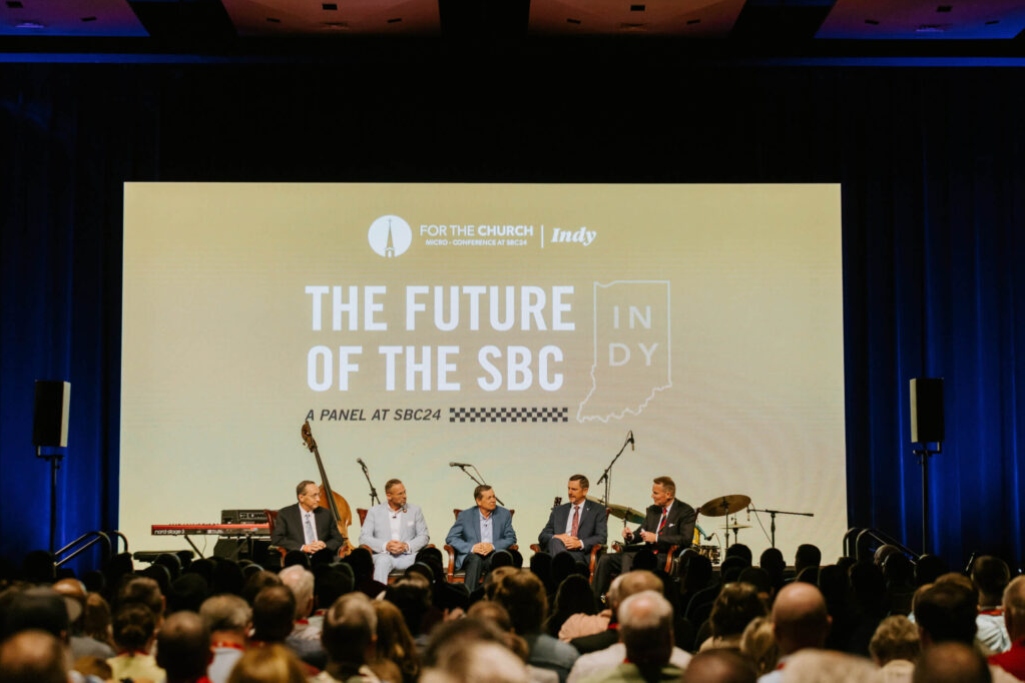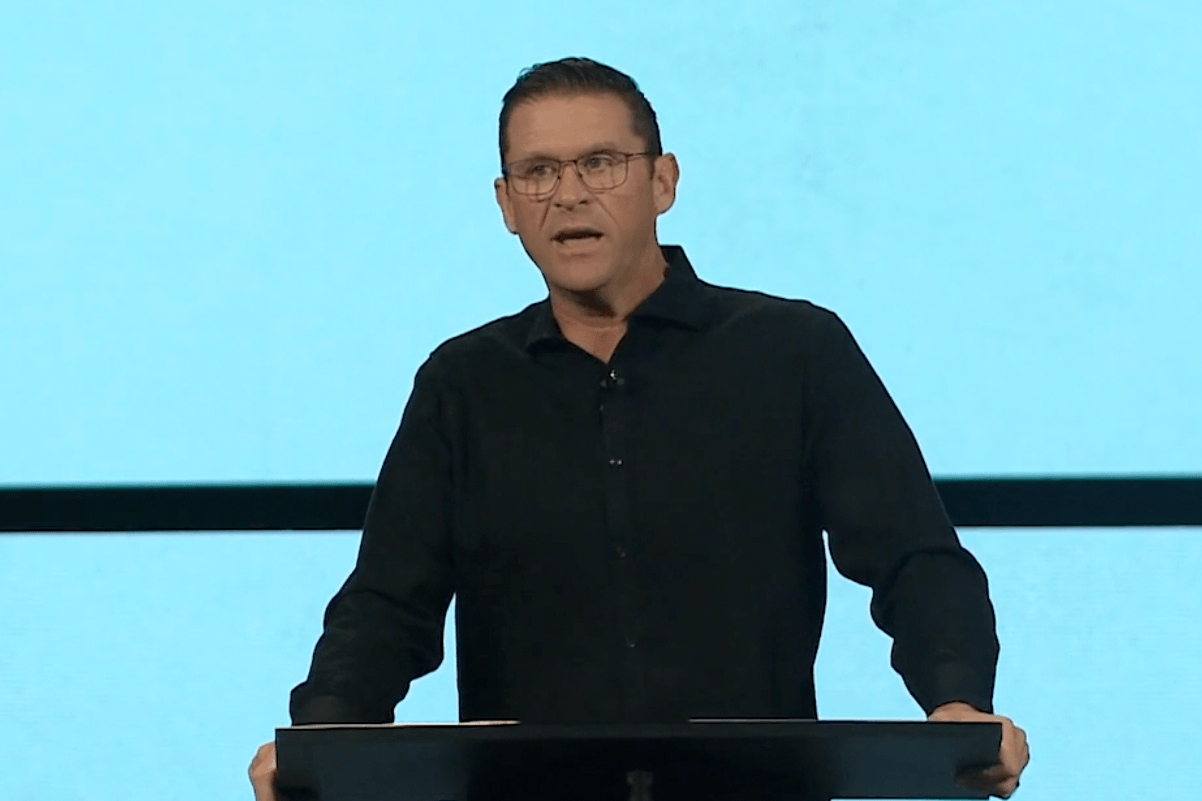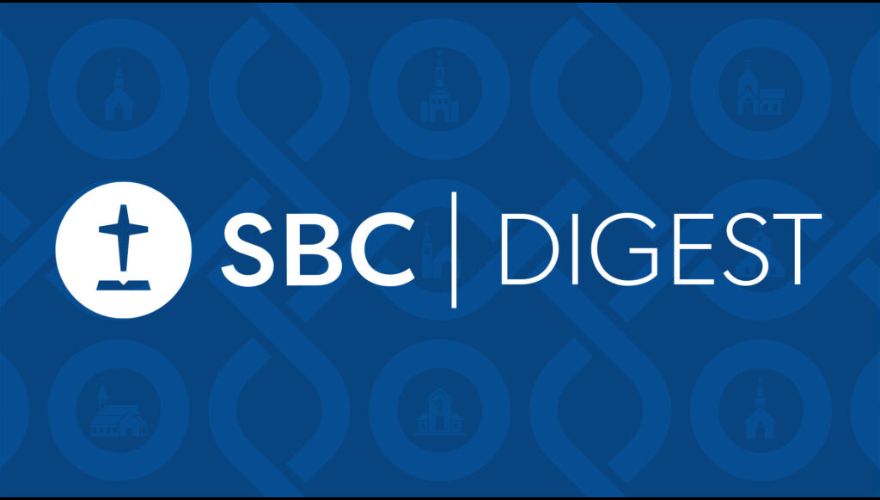
Panelists (left to right) Jeff Iorg, Clint Pressley, Kevin Ezell, Paul Chitwood and Jason Allen discuss the future of the SBC at Midwestern Baptist Theological Seminary's For the Church Micro-Conference June 11 in Indianapolis.
INDIANAPOLIS (BP) — Nearly 1,400 people gathered for a For the Church Micro-Conference on the future of the Southern Baptist Convention (SBC) hosted by Midwestern Baptist Theological Seminary (MBTS) June 11 at the Indiana Convention Center in Indianapolis.
Jason Allen, Midwestern’s president, led a panel discussion with International Mission Board (IMB) President Paul Chitwood, North American Mission Board (NAMB) President Kevin Ezell, then-SBC presidential candidate Clint Pressley (Pressley was later elected) and SBC Executive Committee President Jeff Iorg.
Reflecting on the missional drive that characterizes Southern Baptist churches, panelists cautioned Southern Baptists to remember their unity in the Great Commission as they navigate disagreements, especially on social media.
Pressley, pastor of Hickory Grove Baptist Church in Charlotte, North Carolina, said, “We are people that are hopeful, joyful and driven. We like to deal with the mission. I like us to be known for that.”
Noting the way social media can amplify the negative impact of an issue, Iorg warned Southern Baptists against unnecessary divisions.
Chitwood commended the Convention for faithfully sending missionaries.
“We have the ability to get people into the hardest places in the world and to keep them there because of the giving, the prayers and the 179-year-old sending agency that has been entrusted with resources that give us that ability,” Chitwood said.
Allen highlighted Midwestern Seminary and Spurgeon College’s Fusion programs that train and send students to share the gospel in hard-to-reach and often unreceptive places around the globe.
“Collectively, let’s praise God that He is indeed redeeming a people from every tribe and every nation, and that number is growing by the minute,” Allen said.
Pressley spoke about his vision for the SBC and mentioned his history.
“I’m thankful for the discipleship I received in the Baptist church, the adherence to God’s Word, the press toward conversion and call for the preaching of the cross, the joy of fellowship, the autonomy of the church — all those things that make us Baptist,” Pressley said. “We should be a people that are glad to press toward God’s good intention for mankind in the gospel.”
Allen encouraged the audience with the hope of Christ’s sure victory despite the opposition of culture.
“We can be a happy people knowing that even if we lose in this world, we are surely going to win in the next,” he said.
Looking to the future, Chitwood called for Southern Baptists to be “laser-focused on the world’s greatest problem,” noting his goal to see the number of IMB missionaries grow to 4,000 and expanded cooperative efforts of global Baptists to reach the lost.
Ezell mentioned the importance of integrating new church plants into the SBC’s missionary efforts.
“If Southern Baptists continue to plant churches at the rate we are, then by 2030, one-third of the SBC would have been planted since 2010,” Ezell said.
Pressley encouraged Southern Baptists to hold fast to the gospel and their church planting mission amid an opposing culture. Iorg shared his vision for the Executive Committee to excel in its work of equipping Southern Baptists for an ever-increasing focus on church planting and missions.
Allen concluded with an expression of gratitude for Southern Baptists and his hope in God’s continued work through the denomination.
“Southern Baptists are a great people — Jesus-loving, Bible-believing and gospel-sharing. I believe in us and our work,” Allen said.


